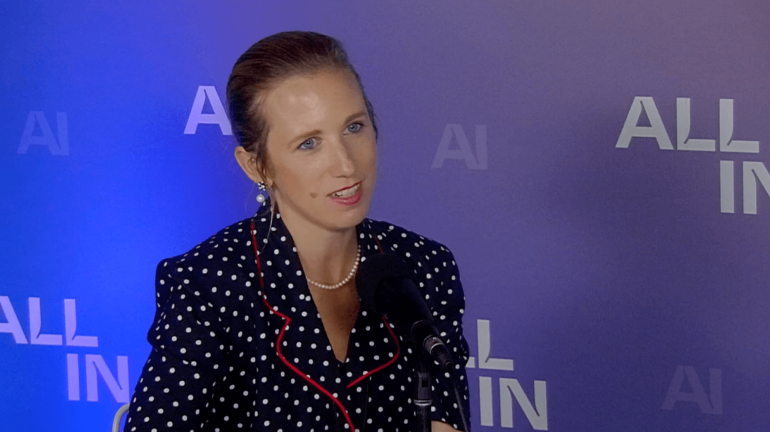While Douglas Soltys was moderating panels the on AI stage at Elevate (which BetaKit programmed), I was in Montréal at ALL IN, the inaugural AI conference hosted by Scale AI.
“I profoundly believe that open source is the way forward for AI so that we avoid this monopoly of power.”
I had the good fortune of not only moderating some panels but talking to some really fascinating people, of which you’ll get to hear from one today: Dr. Sasha Luccioni is an AI researcher at Hugging Face, which is basically a GitHub-style repository for machine learning models.
And we cover a lot of ground: we talk about her research in AI ethics and specifically how it connects to sustainability and climate; we talk about the black box nature of AI and its human cost; and we talked about who’s doing it right.
In each instance, Dr. Luccioni indicates how open data sharing can help, particularly when it comes to tracking the carbon impacts of large language models and the large amount of compute power needed to take advantage of them.
We’re lucky because Dr. Luccioni doesn’t do podcasts that often, but you’ll have to pay attention if you want to follow along with the conversation: both Dr. Luccioni and I talk quite fast and, at times, things get quite nerdy (in the best of ways)!
Let’s dig in.
Canada’s #1 Big Data & AI Conference and Expo is coming back this October 18th & 19th at the MTCC. Don’t wait any longer to secure your FREE ACCESS to the entire event!
Subscribe via: RSS, Apple Podcasts, Spotify, Stitcher, Google Podcasts, YouTube
The BetaKit Podcast is hosted by Douglas Soltys & Rob Kenedi. Produced & edited by Kattie Laur. Feature image courtesy ALL IN. Sponsored by Big Data & AI Toronto and Cisco Secure Firewall.

